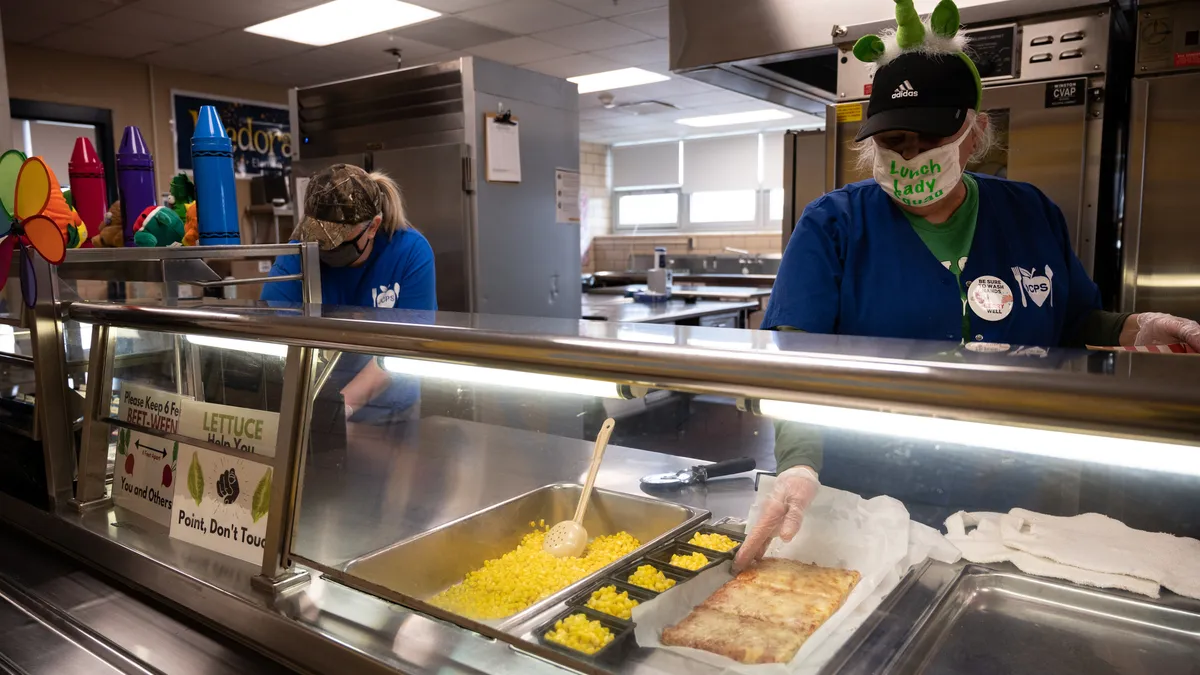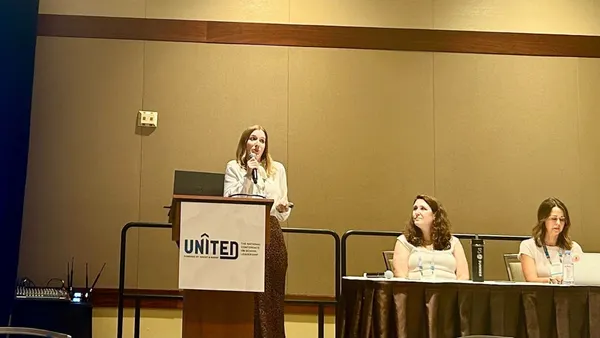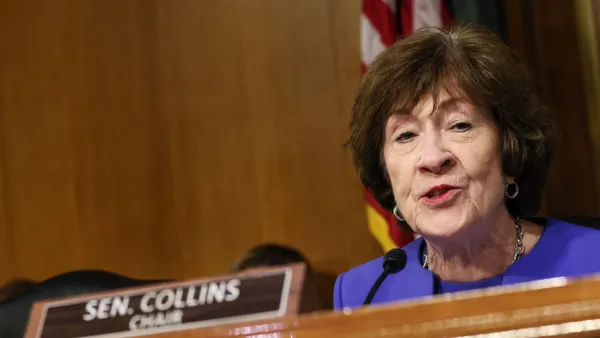Dive Brief:
- Legislatures in Vermont, Minnesota, Massachusetts, Colorado and New York have introduced bills looking to secure universal school meals for at least one more year, with some looking to extend them even further. California and Maine were among the first states to have passed statewide free school meals in 2021.
- As efforts to secure statewide universal school meals are building on both state and federal levels, several state advocates for the policy said they are hopeful they could secure the measure this year.
- But Jennifer Lemmerman, vice president of public policy at Project Bread, which provides and advocates for food assistance for families in Massachusetts, said states can’t wait to rely on the federal government anymore to continue free school meals for all students.
Dive Insight:
Universal school meal advocates said momentum is growing for these statewide efforts this year as the June 30 deadline nears for Congress to extend the U.S. Department of Agriculture’s waiver authority to keep universal meals in place.
One bipartisan Senate bill looking to extend the USDA’s waiver authority is still gaining support in Congress.
While the Senate remains in recess and the deadline to extend universal meals looms, state advocates support the effort but don’t plan to rely on it to ensure students in their areas can get free meals.
In Massachusetts, a bipartisan group of legislators is looking to establish a statewide universal meal program for one year while efforts continue to find a more permanent solution, Lemmerman said. It’s estimated to cost $110 million to fund universal school meals for one year, and the Massachusetts House of Representatives has recently included funding for universal school meals in its budget proposal, she added.
“It was a really clear indication on the House side that they understand why this is needed,” Lemmerman said, but the efforts to secure universal school meals still have a ways to go. “We’re feeling really hopeful that we can get this extended in Massachusetts for one more year while we continue to work on the bill.”
Luis Guardia, president of the Food Research and Action Center, said at a March SXSW EDU panel in Austin, Texas, that state advocacy can be one of several opportunities to ensure free meals for all students. FRAC is an advocacy group looking to improve the nutrition, health and well-being of people struggling against poverty-related hunger.
In a February report, FRAC found that on an average day, 19.6 million children received a free lunch during the 2020-21 school year.
“We don’t want to go backward, and the fact that we were able to see schools offering free meals to all kids helped us to understand that the benefits are just immense,” said Leah Gardner, policy director at Hunger Solutions Minnesota, which is advocating for universal school meals in the state.
Introducing a universal school meal program in Minnesota would cost $185 million per year, Gardner said, but she remains hopeful the measure could still pass considering Minnesota has a $9 billion surplus in its budget.
There hasn’t been much pushback to this proposal in Minnesota, Gardner said, especially as personal stories are shared about the benefits of the current federal universal school meals policy.
In Vermont, 85,000 students will lose access to free meals if legislation is not passed, according to Faye Mack, education and advocacy director for Hunger Free Vermont. Such a policy would cost $29 million for the state to fund on an annual basis, she said.
Overall, Mack said the pandemic shifted the conversation for communities to broadly and better understand the value of free meals in schools.













